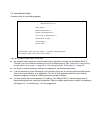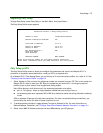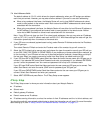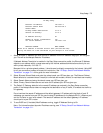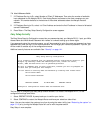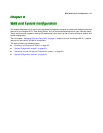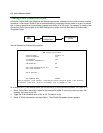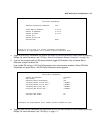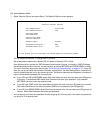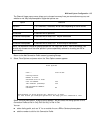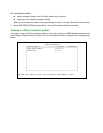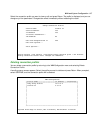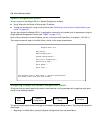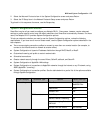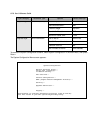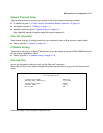
8-4 User’s Reference Guide
7. Select Datalink Options and press Return. The Datalink Options screen appears.
You can accept the defaults, or change them if you wish.
Data Compression options are: Ascend LZS (the default), Standard LZS, or None.
Send Authentication options are: PAP (Password Authentication Protocol, the default), CHAP (Challenge
Handshake Authentication Protocol), the secure token protocols PAP-TOKEN and CACHE-TOKEN, or None.
For more information about token security see “Token Security Authentication” on page 14-37. If your ISP
does not use any of these authentication methods, choose None. The Send Authentication information is
used to authenticate your call to your service provider. The Receive Username and Password information is
used to authenticate attempted dial-in connections.
■ If your ISP uses PAP or PAP-TOKEN, select Send User Name and enter the user name your ISP gave you
to connect. If you selected PAP, select Send Password and enter your password. If you selected
PAP-TOKEN, you don’t enter the password now.
■ If your ISP uses CHAP, select Send Host Name and enter the user name your ISP gave you to connect.
Then select Send Secret and enter the secret (CHAP term for password) your ISP gave you.
■ If your ISP uses CACHE-TOKEN, select Send User Name and enter the user name your ISP gave you to
connect. Select Send Password and enter your password.
You can specify user name and password for both outgoing and incoming calls. Your name and password
can be up to 32 characters each.
Datalink (PPP/MP) Options
Data Compression... Ascend LZS
Send Authentication... PAP
Send User Name:
Send Password:
Receive User Name:
Receive Password:
Channel Usage... Dynamic
Bandwidth Allocation... BAP
Maximum Packet Size: 1500
In this Screen you will configure the PPP/MP specific connection params.



